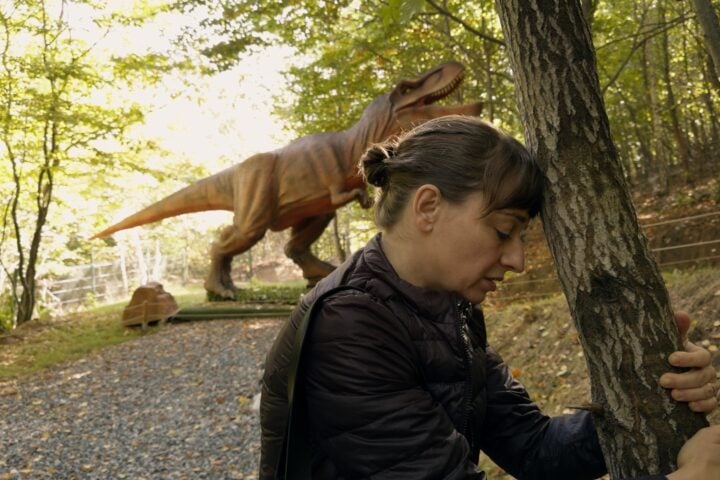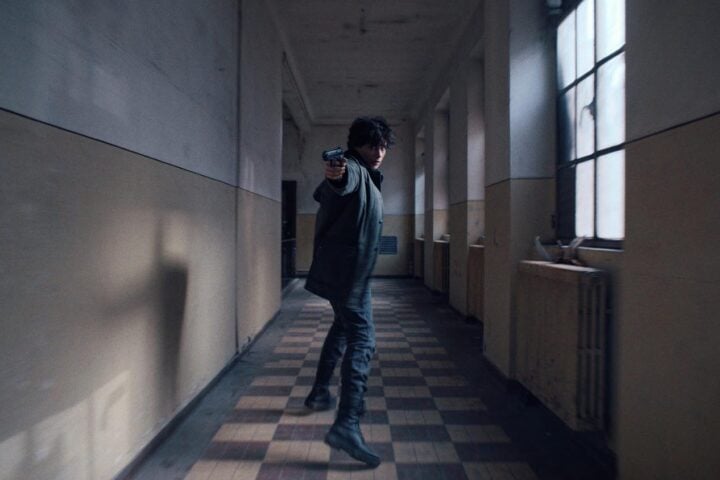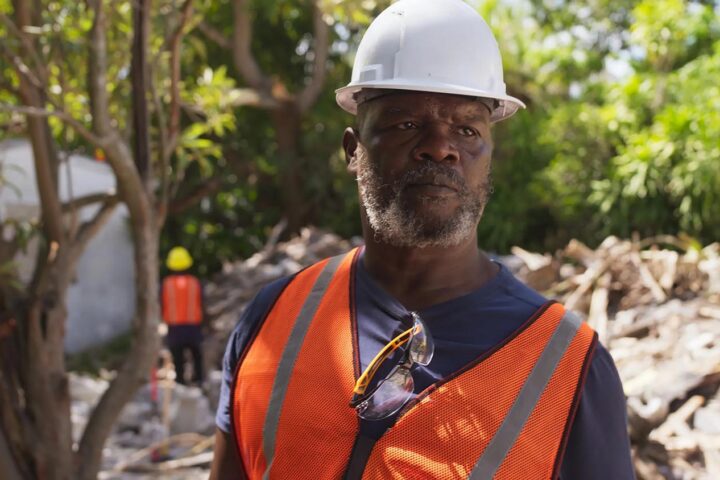A year on from the Locarno Film Festival’s international premiere of Do Not Expect Too Much from the End of the World, which won the festival’s special jury prize on the way to becoming the filmmaker’s most celebrated work to date, a pair of new found-footage films by Radu Jude were screened publicly for the first time on Sunday night at this year’s edition of the festival. Exploring related themes with wildly different approaches, Eight Postcards from Utopia and Sleep #2 showed the Romanian provocateur retaining his fascination with death, the media, capitalist exploitation, and national identity.
Eight Postcards from Utopia is a sharp, mesmerizing, and frequently hilarious hour-long montage of clips from TV commercials broadcast in Jude’s homeland, from the end of communist rule in the 1980s up until the early 2000s. Grouped by theme, style, or audio-visual motif into eight sections, with such titles as “Masculine/Feminine,” “Accidental Poetry,” and “Money Talks,” this playful video essay swerves the obvious satirical angle by focusing on ads that are particularly inventive, sloppily made, or downright unhinged. Far from a sophomoric Gen Xer critique of nefarious consumerist brainwashing, the titular missives instead cumulatively suggest a culture becoming almost entirely adrift from the real world, in which even the most potent symbols appear completely hollowed of meaning.
Forming a counterpoint to the crowd-pleasing sensory overload of Eight Postcards from Utopia, Sleep #2 is a more experimental, durational piece edited together from lo-res livestream footage of Andy Warhol’s grave, which is broadcast 24/7 on the website of the Pennsylvania cemetery in which he’s buried. As uneventful as might be expected, it shows mostly families and other small groups taking selfies, picnicking, or playing guitar beside the headstone, which accrues tributes of Campbell’s soup cans atop its upper surface as the film progresses. Elsewhere, groundskeepers carry out maintenance on the grave and the surrounding plants, while a number of deer occasionally prowl around the site with uncertainty.
While its metaphorical commentary on the state of contemporary art and mass media may not be subtle or even all that interesting, Sleep #2, whose title is a cheeky reference to Warhol’s 1964 avant-garde film Sleep, communicates something useful to an understanding of Jude’s invigoratingly acerbic worldview: Warhol is still dead and arguably so is the postmodernism that he exemplified, but it’s still worth paying close attention to what they wrought.
Though it’s unclear whether these most recent works were conceived before or after Do Not Expect Too Much from the End of the World, they do occasionally resemble preliminary notes or sketches for its scattershot tableau of sociocultural degradation. Sleep #2’s patience-testing vigil is reminiscent of its most somber stretch, which sees the relentless rage, forward motion, and off-color jokes put on hold for a silent montage of over 100 crosses, commemorating lives lost tragically on a particularly dangerous stretch of road outside Bucharest. And a brief behind-the-scenes section of Eight Postcards from Utopia, in which a commercial actor incessantly reworks the details of a brief line delivery until he breaks out in uncontrollable laughter, recalls the film’s riotous skewering and demystifying of the creative process.
With Eight Postcards from Utopia and Sleep #2, Jude continues to draw on and maintain a dialogue with disparate forms of media from the past and present day, and even with icons from beyond the grave. And they further solidify his status as one of our most vital artists, if only for his diligence in showing just how far we have fallen and what it was that precipitated it.
The Locarno Film Festival runs from August 7—17.
Since 2001, we've brought you uncompromising, candid takes on the world of film, music, television, video games, theater, and more. Independently owned and operated publications like Slant have been hit hard in recent years, but we’re committed to keeping our content free and accessible—meaning no paywalls or fees.
If you like what we do, please consider subscribing to our Patreon or making a donation.




